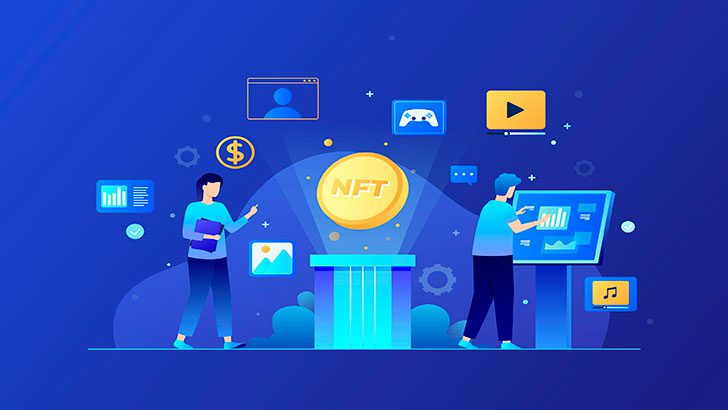It is growing increasingly hard to ignore the world of non-fungible tokens (NFTs). So what are they? More importantly – what are the key legal considerations to bear in mind when considering their use?
In brief, an NFT is a blockchain ‘token’ with a unique ID. This links to an underlying asset (music, art, etc.).
NFTs usually have a ‘smart contract’. This is a form of software attached to the token containing details of the linked physical asset. This smart contract also contains details, restrictions and obligations of the use of the NFT. NFTs and their different uses are seemingly limitless and are evolving all the time.
The specific value of the NFT comes from the fact that the token cannot be replaced as it is unique. It is this uniqueness that gives it value. The most obvious way of realising this value is by selling it to a third-party.
Legal issues in the UK
There is currently no specific regulation in the UK that is aimed at NFTs, although this may change in the near future, so this is an important area to monitor.
Nevertheless, even though there is no specific legislation aimed at NFTs, there are still legal principles, and surrounding issues, which need consideration.
Contractual considerations
The most fundamental aspect to understand is that when anyone buys an NFT they receive ownership of that token. However, unless the smart contract (or related terms of sale) contains additional specifics, then the new owner will not have more than ‘simple ownership’.
For instance, the buyer of the NFT of Twitter’s first Tweet bought the NFT only, they did not buy the associated copyright. It means there is not much the owner can do with the NFT – apart from sell it on. Should the owner wish to capitalise on the NFT and (say) emboss coffee mugs with that first tweet, they are not legally able to do this.
In this context, it is essential that each NFTs smart contract contains, in writing, all of the specifics of what a buyer is trying to achieve when buying and selling NFTs. In short, ownership of an NFT does not necessarily give additional rights in the underlying asset.
Intellectual Property Rights
As applies with ownership, copyright and other Intellectual Property Rights (IPR) will remain with the issuer. The purchaser is simply granted a right to display the underlying asset through the NFT. Therefore, buyers must think carefully about what they are intending to do with the NFT and ensure any relevant IPR is assigned correctly.
At A City Law Firm, we have seen plenty of smart contracts associated with NFTs which transfer the entirety of the underlying assets IPR to the buyer. Yet it is also common to see a transfer with royalty rights, i.e. the issuer is granted commission on resales (from the buyer). This is possible because an NFT exists on a blockchain (usually Ethereum) which means tracking such resales is (relatively) easy.
Existing financial regulations
When using NFTs owners must also assess any such uses to establish if such uses possess characteristics similar to traditional financial securities. If this happens, there is a chance that such use of an NFT will fall under the regulations of the Financial Conduct Authority. This is what happens with other financial services and their providers.
As a general rule, a token that functions as money will likely have regulations. If, however, a token confers rights to obtain goods or services or does not confer any rights at all (other than to buy, hold and sell) then it is unlikely to be regulated. What is important to bear in mind is that any regulated activity will have strict rules applicable to advertising and use – and harsh punishment for non-compliance.
Knowing this means specific advice – as to whether an intended use for an NFT falls under existing financial regulations – is crucial in avoiding non-compliance. If regulation applies, owners must ensure correct compliance to avoid the long arm of the FCA.
Tax implications
As with financial regulation (above), if an NFT owner is unsure if there will be tax liability applicable to an NFT, it is essential to seek professional advice. To complicate matters, HMRC has not, as yet, released specific guidance when it comes to the taxing of NFTs. This is not likely to last. Most expect HMRC to quickly catch up, especially given the profits currently being made on NFTs.
Conclusion
NFTs are a new and exciting area of the online world. Money can be made and as such, businesses may wish to capitalise on this space. As with any new market, regulations will rapidly evolve and consideration must be given to existing and overlapping regulations.
If you are in need of help navigating this new world, please reach out to our Tech Team here at ACLF.

